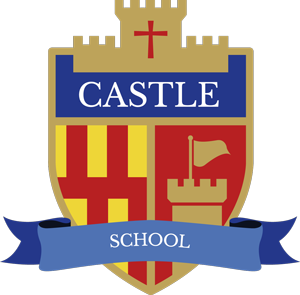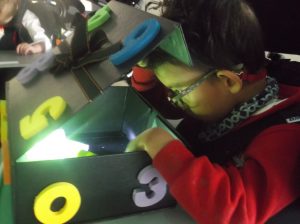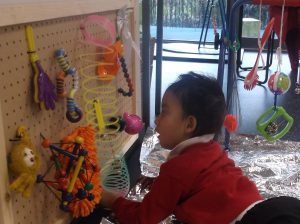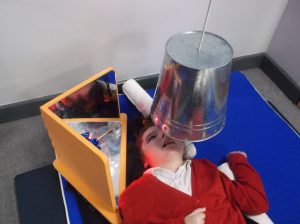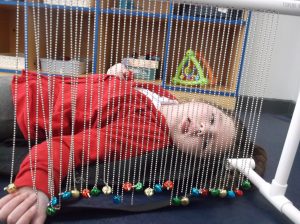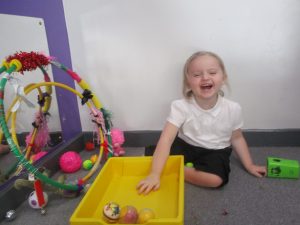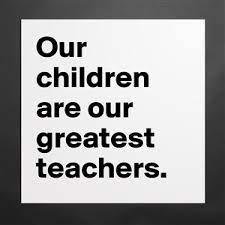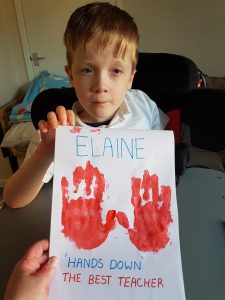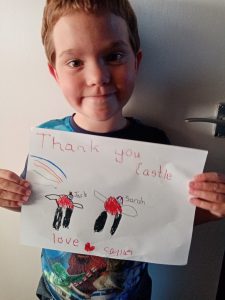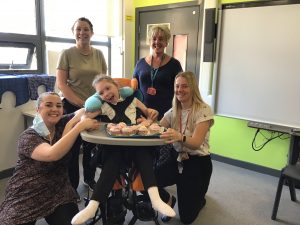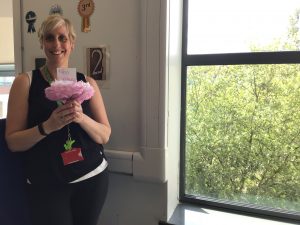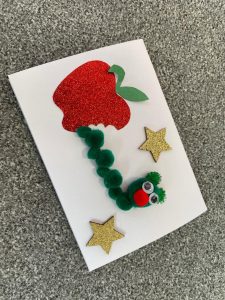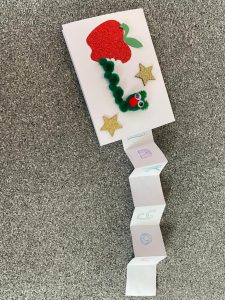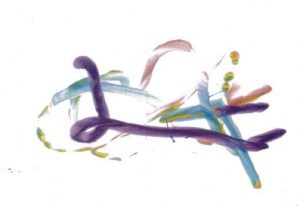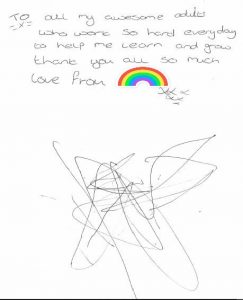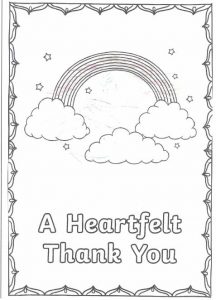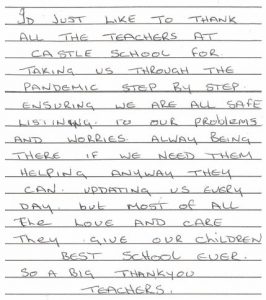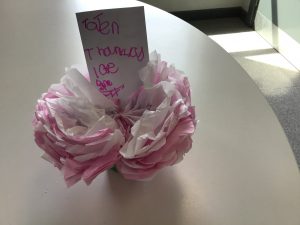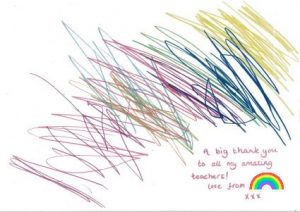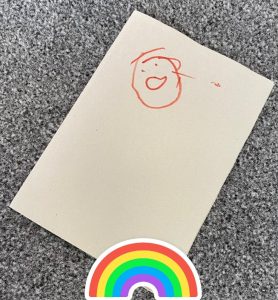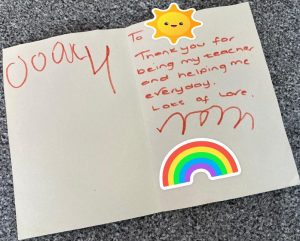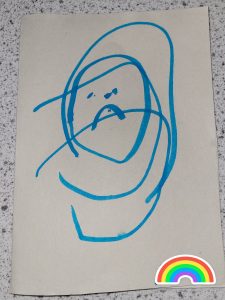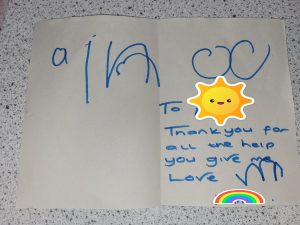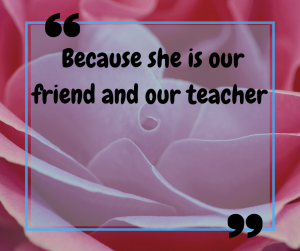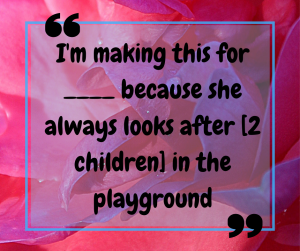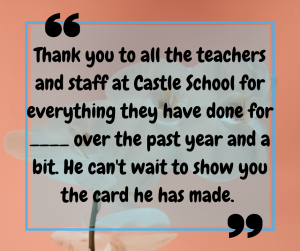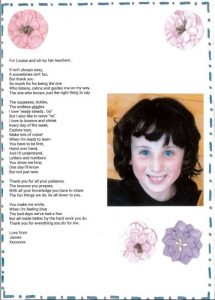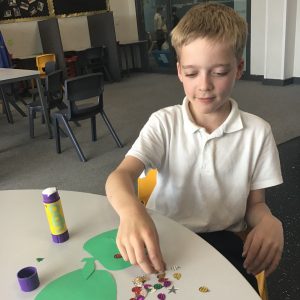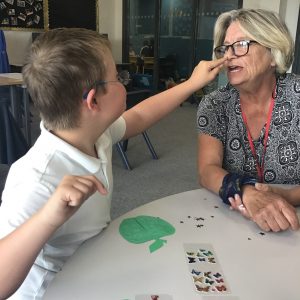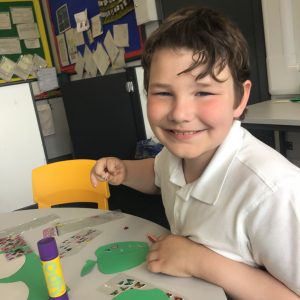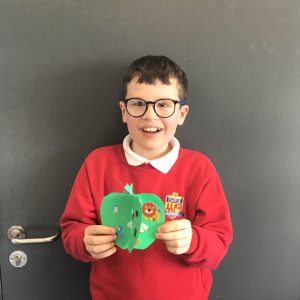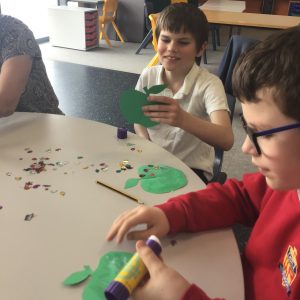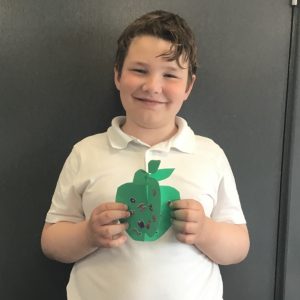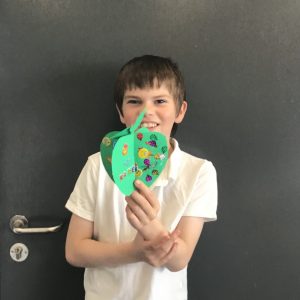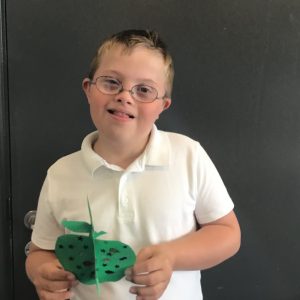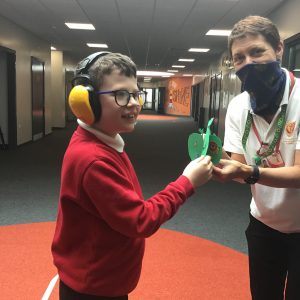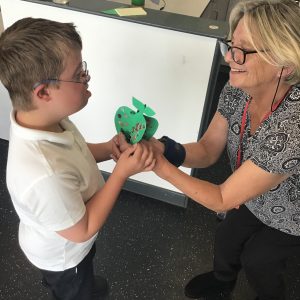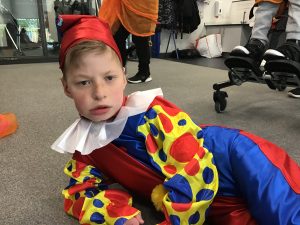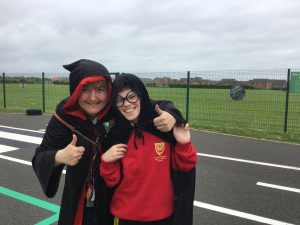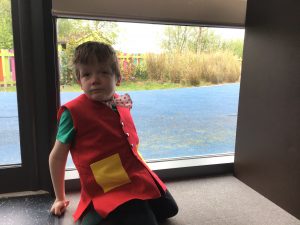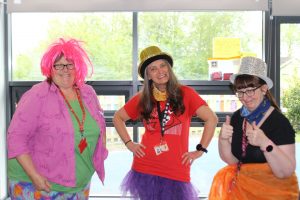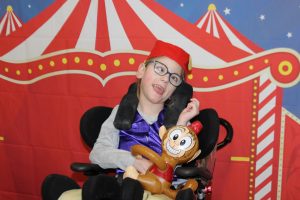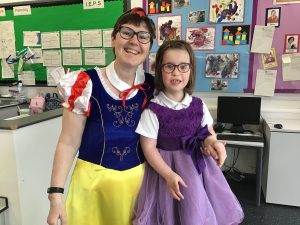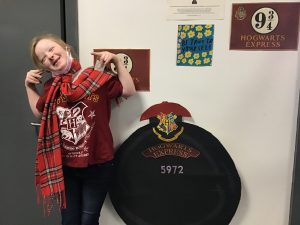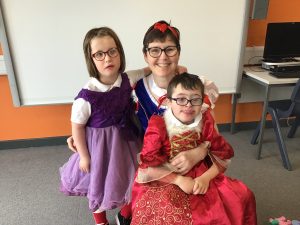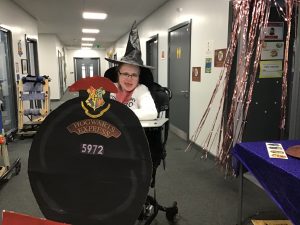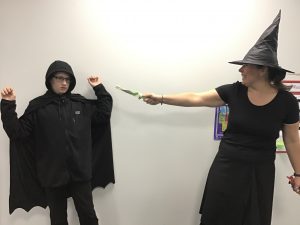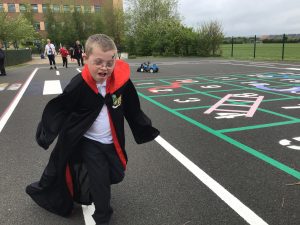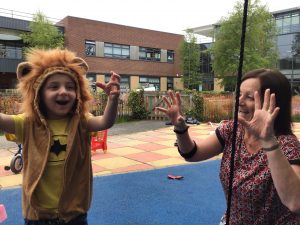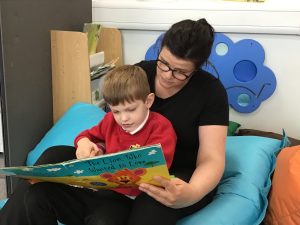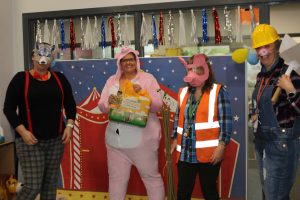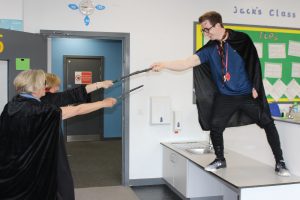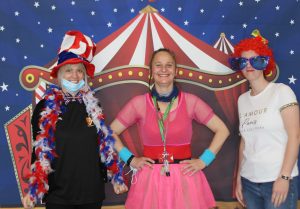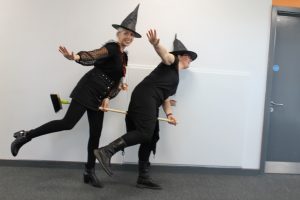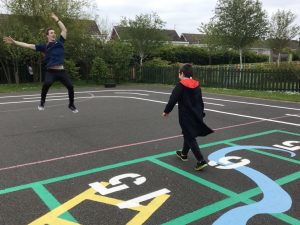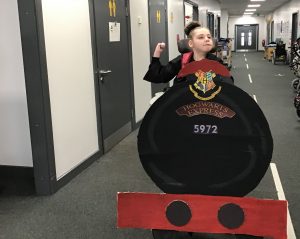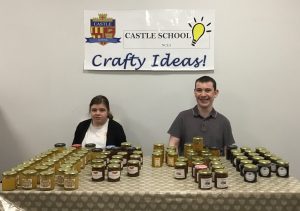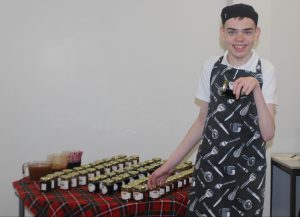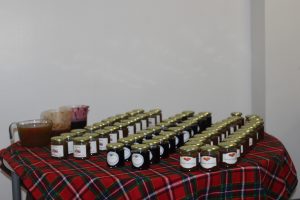A teacher at a school in South East Northumberland for children and young people with profound and multiple learning disabilities (PMLD) is helping pupils to take miraculous steps towards a better, more independent way of living by getting creative with items typically found around the house.
Gillian Robinson, a primary teacher at Castle School, has introduced the concept of ‘Active Learning’ into her classroom to help give a sense of freedom back to pupils who are typically dependent on those around them to support their needs.
Devised by Danish psychologist, Dr Lilli Nielson, as a solution for teaching children with visual impairments, Active Learning has adapted over the years and is now recognised as beneficial to children and young people with a wide range of severe and multiple disabilities.
Gillian first came across the approach during lockdown while researching ways to better manage the complex range of needs within her classroom to ensure that while individuals’ medical, hygiene and feeding needs were attended to, that the rest of her class remained stimulated.
Using everyday items such as buckets, A-frames, Tupperware boxes, blackout curtains and plumber’s piping, Gillian has created a sensory paradise for her learners to support their mobility and cognitive skill development, alongside their emotional and social wellbeing.
“Many children with profound and complex needs develop ‘learnt helplessness’ – the idea that they have no control over their environment, so they learn to wait patiently and that eventually, someone will provide them with what they need. Over time, this kind of behaviour can lead to passiveness where children stop communicating altogether,” Gillian commented.
“Active Learning is designed to encourage the children to do things for themselves, it teaches children how to interact with their environment and explore their immediate space with confidence and shows them how their actions can affect the things around them.”
While specialist equipment to support Active Learning is available, many of the manufacturers are based in the United States, which makes sourcing equipment tricky and expensive – luckily, Gillian is quite creative.
“Lilli Nielson recognised that children with sensory and physical impairments needed to be taught to explore the space around them using all of their body,” said Gillian.
“A few of the children in my class have very limited movement and rely on specialist positional equipment like wheelchairs or work chairs, which can make accessing sand and water trays, foot spas and play spaces very difficult.
“By combing the internet, I was able to find designs for DIY versions of almost all of the resources I needed to bring Active Learning to life in the classroom in a way which would meet the very specific needs of my pupils.
“I made my own waterfall curtain out of plumbers piping and a window blind cord with small bells added onto the end; our echo bucket is simply a metal bucket with holes cut into it attached to a rope pulley system so I can lower it over children sitting in wheelchairs. Our A-frames and wall-mounted sensory boards are made from materials found at B&Q and the voice activated light box is just a large Tupperware container lined with some reflective foil and fitted with a disco light that reacts to bass sounds – which has made a huge difference to our non-verbal children, showing them that using their voice has a purpose and will be listened to.
“After some searching, I was even able to find a design to make accessible foot exploration trays from decking boards which the children can use while in their work chairs to help them develop awareness and purposeful movement of their feet.”
Sara Wild, Principal at Castle School, commented:
“We’ve been amazed by the improvements shown by some of the children in Gillian’s class since the introduction of Active Learning into their daily lessons.
“One child, who was quite disengaged and spent a lot of his floor time curled up and actively turning away from interactions and resources now reaches out to explore things around him in lots of different environments and his engagement in his exploration is really focused. He also has much better use of his voice to attract attention. Another, who uses a walking frame to aid his mobility, has made remarkable improvements, going from being unmotivated to move around and reluctant to take steps to now showing huge resilience and persistence when moving around large spaces to reach the toys and resources he wants to engage with.
“The success of the Active Learning initiative in Gillian’s class has seen us make time in our curriculum for Active Learning across Castle School, with Gillian taking the lead on training our teachers and support staff. We’re incredibly proud of what Gillian has achieved and can’t wait to see more of our children benefit from the programme.”
Castle School is a specialist provision for children and young people with profound and multiple learning disabilities. Operating as part of Northumberland Church of England Academy Trust, the school offers places for pupils aged 2-19 at its purpose-built campus in Ashington.
For more information about NCEAT, visit www.ncea.org.uk.
Pupils enjoying Active Learning at Castle School
(Click on any photo to enlarge)
